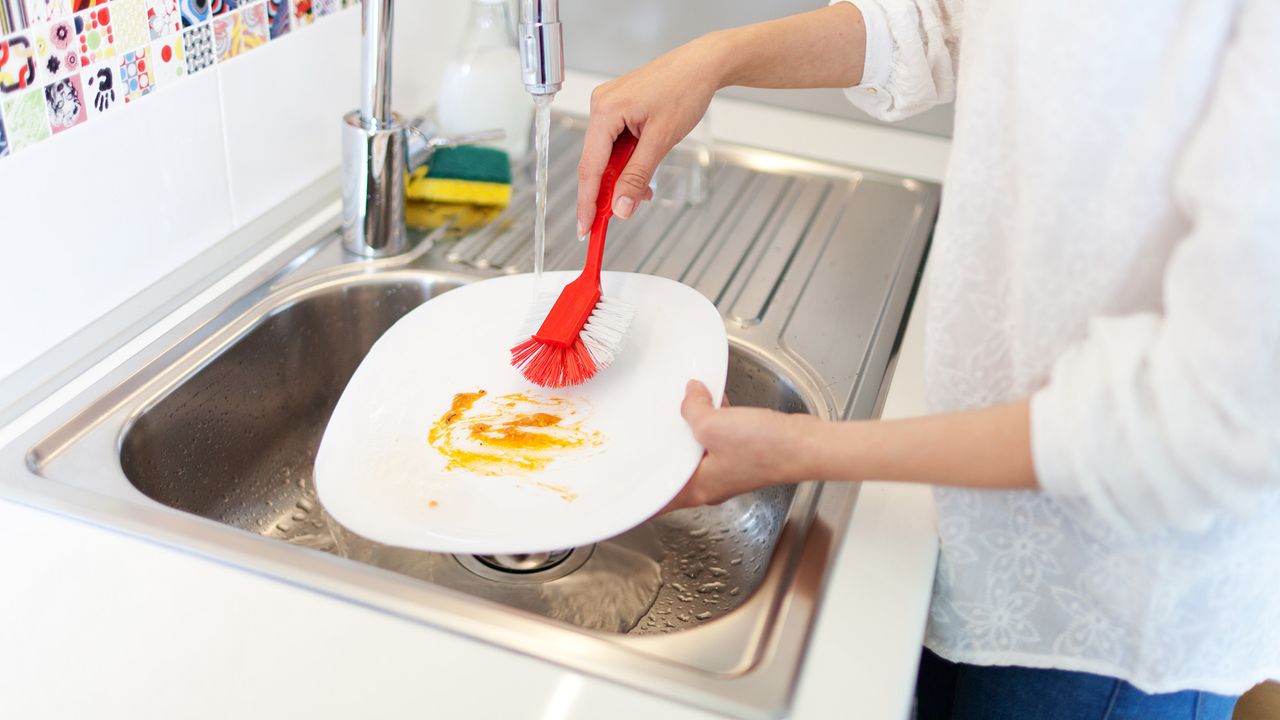Technology
Experts Confirm: Pre-Rinsing Dishes Before Dishwashing Is Unnecessary

A consensus among appliance experts has emerged: pre-rinsing dishes before loading them into a dishwasher is unnecessary. This revelation provides relief for many households, as it eliminates an additional chore associated with dishwashing. The advancement of technology in modern dishwashers means they are now capable of effectively cleaning dishes without the need for pre-rinsing.
The question of whether to rinse dishes stems from older dishwasher models and traditional cleaning habits. According to Ian Palmer-Smith, an Appliance Repair Expert at Domestic & General, “One of the biggest dishwasher myths is that you need to rinse items before loading them. In reality, this uses extra unnecessary hot water and typically won’t improve the results.” He likens pre-rinsing to washing a car before taking it to a car wash, emphasizing that modern machines are designed to handle tough stains without extra preparation.
Understanding Modern Dishwasher Efficiency
The need for pre-rinsing is largely dependent on the age of the dishwasher. Vanessa Ruiz, a professional organizer at Sparky Maid in San Antonio, notes that pre-rinsing is unnecessary for any machine manufactured in the last decade. She explains that it can even reduce cleaning effectiveness and lead to waste of both water and energy. Lindsay Zolman, a Senior Consumer Analyst at Hisense, highlights the environmental impact, stating that pre-rinsing can waste up to 20 gallons of water per load.
Dishwasher detergents have also evolved, and most modern options are enzyme-based. These detergents require some food residue to work effectively. Scott Schrader, a cleaning expert at CottageCare, explains that rinsing dishes clean can hinder the detergent’s ability to break down starches and proteins, ultimately diminishing the cleaning process. Lindsay Jones, Senior Manager of PR & Brand Experience at Maytag, adds that some dishwashers include sensors that gauge soil levels, and pre-rinsing can interfere with these sensors, potentially leading to inadequate cleaning results.
The consensus is clear: skipping the pre-rinse can save both time and resources. The only instance where pre-rinsing may be advisable is when dealing with burnt-on stains. Even then, a quick soak may suffice instead of rinsing the entire item by hand.
Best Practices for Optimal Dishwashing
Although pre-rinsing is not recommended, some basic maintenance is still necessary. Zolman advises that large food particles, such as bones and peels, should be scraped off before loading dishes into the dishwasher. This simple step can prevent clogs and enhance cleaning performance. It is crucial to use common sense when deciding whether to scrape a plate, as insufficient scraping may leave small food items stuck in the dishwasher’s spray arms.
For optimal dishwasher performance, Ruiz emphasizes the importance of using high-quality detergent, correctly loading the dishwasher, and following the manufacturer’s instructions. These practices ensure that households can enjoy the full benefits of their dishwashing appliances without the unnecessary chore of pre-rinsing.
In conclusion, the modern dishwasher is equipped to handle the dirty work, allowing users to save time, conserve water, and simplify the dishwashing process. With the support of industry experts, households can confidently load their dishwashers without the extra step of pre-rinsing, knowing that their dishes will emerge clean and ready for use.
-

 Technology4 months ago
Technology4 months agoDiscover the Top 10 Calorie Counting Apps of 2025
-

 Health2 months ago
Health2 months agoBella Hadid Shares Health Update After Treatment for Lyme Disease
-

 Health3 months ago
Health3 months agoErin Bates Shares Recovery Update Following Sepsis Complications
-

 Technology3 weeks ago
Technology3 weeks agoDiscover 2025’s Top GPUs for Exceptional 4K Gaming Performance
-

 Technology2 months ago
Technology2 months agoElectric Moto Influencer Surronster Arrested in Tijuana
-

 Technology4 months ago
Technology4 months agoDiscover How to Reverse Image Search Using ChatGPT Effortlessly
-

 Technology4 months ago
Technology4 months agoMeta Initiates $60B AI Data Center Expansion, Starting in Ohio
-

 Technology4 months ago
Technology4 months agoRecovering a Suspended TikTok Account: A Step-by-Step Guide
-

 Health4 months ago
Health4 months agoTested: Rab Firewall Mountain Jacket Survives Harsh Conditions
-

 Lifestyle4 months ago
Lifestyle4 months agoBelton Family Reunites After Daughter Survives Hill Country Floods
-

 Technology3 months ago
Technology3 months agoUncovering the Top Five Most Challenging Motorcycles to Ride
-

 Technology4 weeks ago
Technology4 weeks agoDiscover the Best Wireless Earbuds for Every Lifestyle









